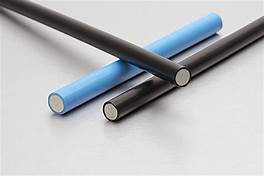
What Type of Polymer Is Used for Plastic Injection Molding?
Plastic injection molding is a key process for automotive, healthcare, solar, and appliance businesses. The process results in custom-molded parts and components central to these industries’ operations. At Clark Rubber and Plastic, we use high-quality polymers to deliver components for projects of different complexities. Here are some common types of polymers:
Polycarbonate
Polycarbonate is a lightweight, transparent polymer that can support light transmission. The polymer is also strong and durable, making it ideal for our clients in the automotive industry. It’s commonly used for clear windows. It can also be suitable for tinted windows as it retains its strength even when pigmented.
Polycarbonate is one of our core injection molding polymers because it can maintain its physical properties even when exposed to high temperatures. It can offer a high level of dimensional control as its shrinkage is uniform and predictable.
Acrylonitrile Butadiene Styrene (ABS)
This polymer’s relatively low melting point makes it easy to mold. It’s one of our top injection molding plastics because it’s exceptionally tough, even when exposed to low temperatures, and has a high impact resistance. The polymer can also support different surface finishes, colorants, and textures.
Its strength and impact resistance makes it a great choice for clients in the automotive industry—it can be used to manufacture auto body parts and dashboards. The consumer industry can also benefit from this polymer as it can make products like protective headgear and electrical outlets.
Nylon
Nylon is one of our popular polymers known for its abrasion resistance, strength, noise-dampening properties, and toughness. It’s used in injection molding applications like bearings, slides, gears, and other mechanical components. The polymer can also be used in the appliance industry as an electrical insulator.
Nylon has different grades, each with unique impact resistance, flexibility, water absorption, and melting point properties. For example, Nylon 12 has a low melting point, whereas Nylon 66 has a high one. Our staff can help you choose the most suitable option depending on your intended use.
Polyvinyl Chloride (PVC)
We recommend PVC to our clients because of its high durability and versatility. The polymer is available in rigid and malleable forms to fit different industries’ uses. In its malleable form, the polymer can be ideal for businesses in the consumer and appliance industries—it can be used in packaging and encase copper wiring. Its rigid form can be suitable for making products like water pipes, flooring, and children’s toys.
High-Density Polyethylene (HDPE)
HDPE is a polymer made from petroleum. It’s a popular injection molding plastic at Clark Rubber and Plastic as it has a high strength-to-density ratio. This makes it ideal for making products like recycling bins, toys, and water and gas pipes.
Thermoplastic Polyurethane (TPU)
TPU is a flexible polymer that offers high chemical resistance, toughness, abrasion resistance, and strength. It’s well-suited for parts like gaskets, gears, and wheels in the automotive industry. The polymer can also be a suitable choice for our appliance industry clients as its dimensional stability makes it ideal for manufacturing products like phone cases.
Different Polymers Can Be Used In Plastic Injection Molding
Plastic injection molding helps produce a wide variety of plastic products. Common polymers used in the process include polycarbonate, PVC, nylon, and ABS, each with unique properties.
Clark Rubber and Plastic can support your production processes by supplying close-tolerance plastics from our wide range of polymers. Our experts can help you choose the most suitable plastics based on your durability and strength requirements. Contact us for high-quality plastic parts today.
